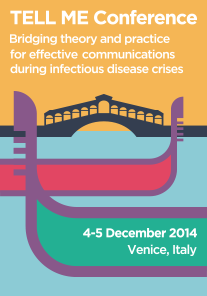D2.3 - Report on Health Care Professional Communication Requirements
General practitioners (GPs) have a crucial role in preventative activities during pandemics. They possess high accessibility by the population and hold high levels of credibility and trust from the public. They also have a personalised relationship with patients and are able to target communication to at‐risk groups.
The report investigate the communication requirements for healthcare professionals. In order to do that, a series of focus group discussions, one‐to‐one interviews and online questionnaires were performed among GPs from Europe and the United States of America.
The questions mainly focused on the direct experience and opinions of the GPs about: how the 2009/2010 pandemic situation was handled in general; the consequences in their own practice; the attitudes towards vaccination; the differences among different patient groups; eventual advices on the management of a future similar situation.
Participating GPs felt in general that national and local health authorities would have to handle the pandemic situation differently in the future. Media communication was perceived as misleading and thus represented one of the main problems during the 2009/2010 pandemic flu. Patients were alarmed and GPs did not have enough information and tools to handle “hysteria”. These mistakes triggered doubts in the population about the pandemic situation and about the real need for vaccination. Different countries had different situations: GPs from Eastern‐European countries complained about communication gap, whilst British GPs felt that the communication overload in the UK from different sources was overwhelming at times. GPs experienced many problems in the field of coordination among health care professionals. Issues in the management of logistics were also reported, for instance in the supply and distribution of the vaccines.
Regarding vaccination, GPs had fewer problems with patients who took flu vaccines in previous years and patient at risk. Vaccination of pregnant women often proved to be difficult, as well as that of ethnic minorities.
Researchers extracted some recommendations from these results:
- improve external communication targeted to GPs and internal on between healthcare professionals;
- improve coordination between national and regional health government and GPs, and amongst GPs themselves;
- improve organization, for instance by making vaccine shipment more timely, by widening the target of those who get vaccine free, by lowering the prices of vaccines to people not belonging to a target group and by providing clear legislation or legal support.
Read the document online:
D2.3 - Report on Health Care Professional Communication Requirements


